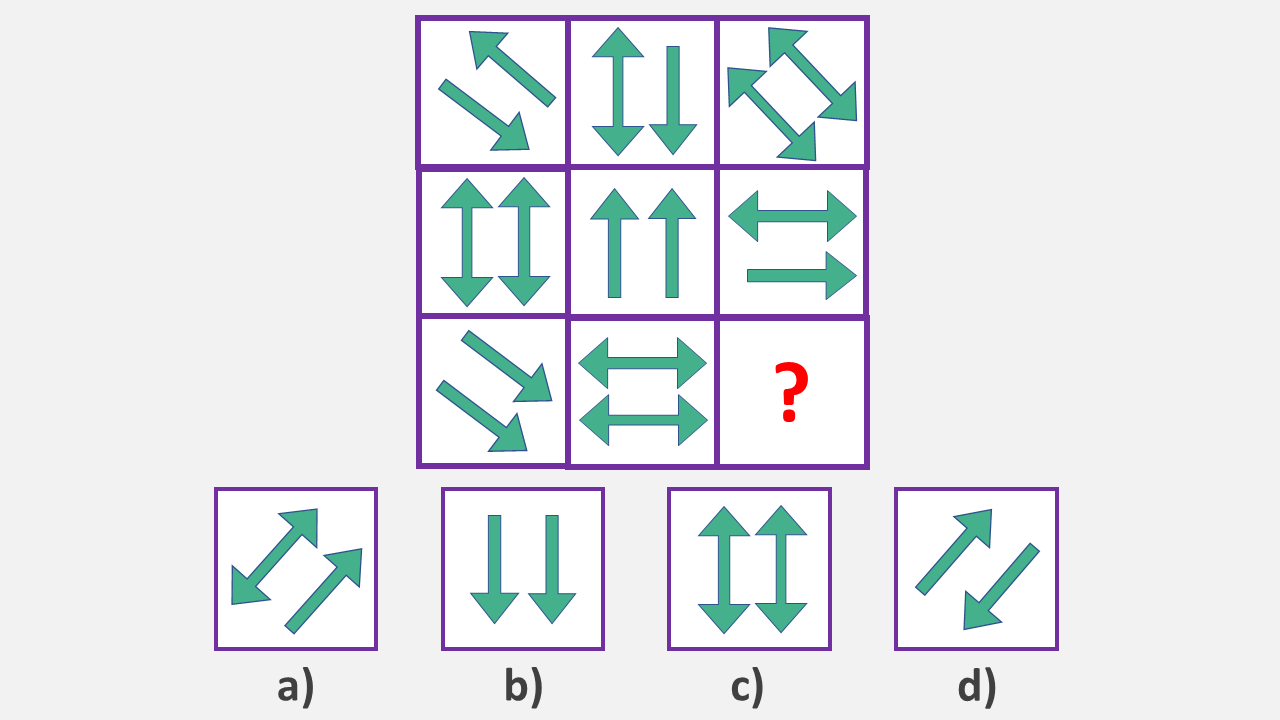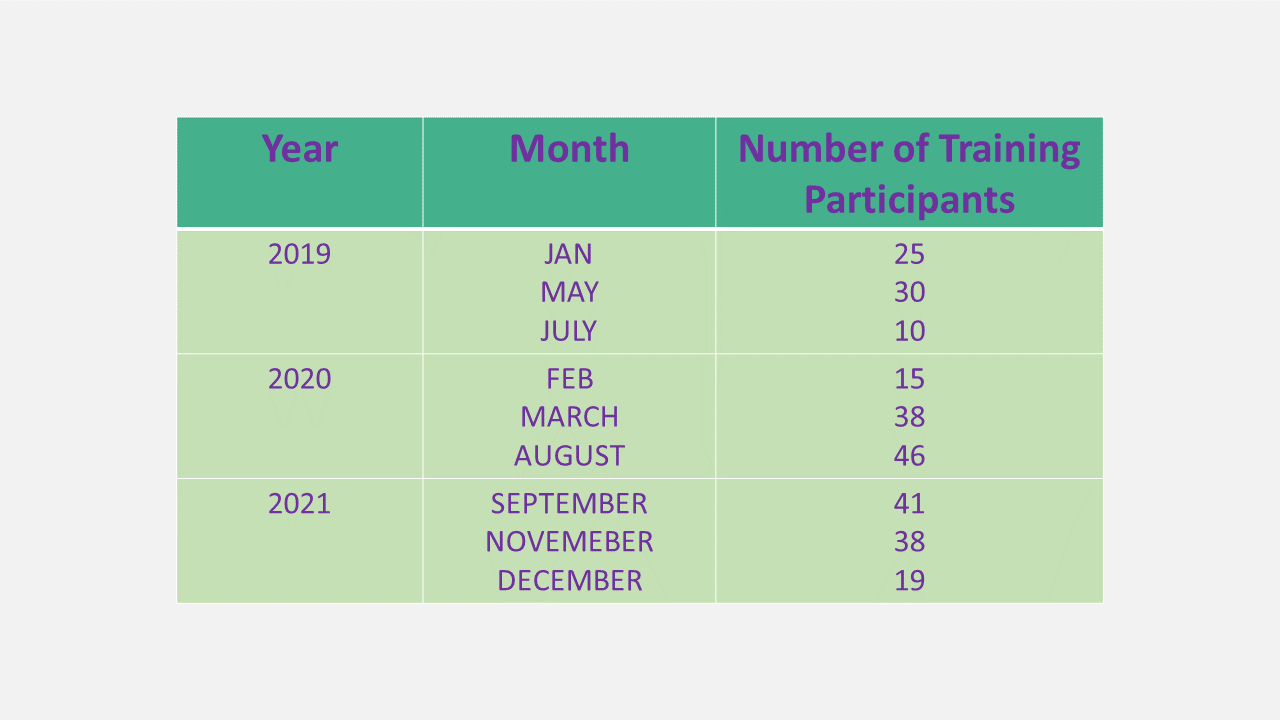
Talent Q Test: Tips and Guide
Sep 13, 2022Talent Q is a well-established, popular provider of aptitude and performance tests. Its range of innovative, adaptable assessments help organisations around the world identify the most promising talent at all levels and in all sectors of employment.
If you’ve been asked to take a Talent Q test, this article covers all you need to know, including example questions and key preparation tips for acing your assessment.
What Is a Talent Q Test?
A Talent Q test is not one single test but rather a series of assessments that can be used on their own or in conjunction with one another.
Depending on its configuration, a Talent Q test can be used to assess an individual's key aptitudes like verbal reasoning, numerical reasoning and logical reasoning, personality traits, behaviours and motivations.
An employer may use a Talent Q test as a screening tool for recruitment or to identify development opportunities for an existing workforce.
The tests first appeared in 2006 and were developed by Roger Holdsworth, one of the co-founders of the equally well-known test provider SHL.
In 2014, Talent Q became part of the Hay Group, and its tests are now administered through Korn Ferry.
What Sets Talent Q Tests Apart From Other Assessments?
Talent Q tests were developed to be different. The team behind these assessments sought a versatile approach, where a single test type could be used for various applications.
As a result, there are several things that set Talent Q tests apart from other psychometric tests on the market:
Talent Q Tests Are Blended
Though they can be used as standalone tools, Talent Q tests are designed so employers can ‘blend’ them together to create custom assessments.
For example, numerical and verbal reasoning skills can be measured alongside situational judgement in one single test.
Talent Q Tests Are Adaptive
Using computer adaptive testing (CAT) technology means that for every question you answer correctly the next increases in difficulty. So, the better you do in a Talent Q test, the harder it becomes.
This applies in reverse too. If you answer a question incorrectly, the next one presented will be slightly easier.
The purpose of this approach is to find your maximum performance level, giving employers an accurate picture of what you’re capable of.
Talent Q Tests Are Purposefully Challenging
This is true of all psychometric tests, but Talent Q takes it a little further.
First with the inclusion of lots of irrelevant detail, meaning as a test taker you really have to focus on identifying pertinent information for each question.
Second, Talent Q tests are very short, so you’ll also be up against the pressure of a challenging time constraint.
You can see just how different these assessments are with our practice Talent Q tests.
Talent Q Test Types
Talent Q publishes several different tests, split into five categories.
These categories are:
- Elements
- Aspects
- Dimensions
- Motivations
- Situational judgement
Talent Q Elements
Talent Q Elements is a suite of ability tests that, thanks to their adaptive nature, can be used at all stages of employment, from graduate to executive level.
There are three core abilities covered. Your prospective employer may choose to administer them as standalone tests, or as a blended assessment.
Elements Verbal
A verbal reasoning test is a measure of your language comprehension and your ability to accurately interpret written information.
Each question requires you to analyse a passage of text, then choose from one of several statements you believe to be true based on what you’ve read.
There are 15 questions in Elements Verbal, with a time limit of 16 minutes.
Elements Numerical
This numerical reasoning test looks at your capacity for data interpretation.
You’ll be shown sets of numerical information, presented in a table, and you will need to draw conclusions from it to correctly answer a series of multiple-choice questions.
There are 12 questions in Elements Numerical, with a time limit of 16 minutes.
Elements Logical
This logical reasoning test looks at your problem-solving skills by asking you to complete a series of abstract puzzles.
You’ll need to determine sequential rules in a pattern of symbols to fill in a missing part. Again, you’ll have multiple-choice options to pick from.
There are 12 questions in Elements Logical, with a time limit of 15 minutes.
Talent Q Aspects is a suite of ability and competency-based assessments, designed for use in service and customer-facing industries such as hospitality and retail.
Again, a prospective employer may issue Talent Q Aspects tests on their own or in conjunction with one another.
Aspects Ability
This is made up of the following test types:
- Aspects Verbal is a verbal reasoning test with 12 questions and a time limit of eight minutes.
- Aspects Numerical is a numerical reasoning test with 12 questions and a time limit of 10 minutes.
- Aspects Checking is an error-checking test where you’ll need to identify data entry errors at speed. You’ll have eight tables of data to work through with a time limit of six minutes.
Aspects Styles
This is a pre-employment screening questionnaire that looks at the competencies deemed essential for service and customer-facing roles.
You’ll be given a series of statements which you must rate in accordance with how well they fit your own behaviour in a work environment. There is no time limit to this questionnaire.
The competencies covered in Aspects Styles are:
- Adaptability
- Planning and organising
- Working with data
- Commercial orientation
- Teamwork
- Complex thinking
- Interpersonal skills
- Creativity
- Stress tolerance
- Drive and motivation
- Customer orientation
- Resourcefulness
- Influencing and selling
- Decisiveness
- Efficiency and reliability
- Resilience
Talent Q Dimensions
Talent Q Dimensions is a personality questionnaire that measures an individual's working style, social preferences and professional behaviours.
Much like Aspect Styles, you’ll be given a series of statements that you’ll be asked to rank on a scale from completely untrue to very true, depending on how relevant each statement is to you.
Talent Q Dimensions assesses personality across three core areas:
- People and relationships – Your ability to communicate, work well with others and form supportive relationships in the workplace.
- Tasks and projects – How you prefer to manage your workload, how you process new information and how you tackle your responsibilities.
- Drives and emotions – What motivates you, how you adapt to challenging situations and your tolerance for stress.
Again, there is no time limit for completing Talent Q Dimensions, though most candidates take around 25 minutes.
Talent Q Motivations
Talent Q Motivations is used to determine culture fit and how engaged you’re likely to be as an employee by looking at what drives you.
This is another questionnaire-style assessment, where you’ll rate statements from extremely important to not important.
The statements posed uncover your motivations in four domains, with four sub-areas of assessment in each:
- Challenge – This refers to how you pursue professional development. The sub-areas of assessment in this domain are achieving, learning, pioneering and personal growth.
- Connection – This is about your interactions with others. The sub-areas of assessment in this domain are 'positive impact', 'service', 'affiliation' and 'supporting'.
- Esteem – This relates to job satisfaction and how you find a sense of worth in what you do. Sub-areas here are authority, acquisition, recognition and professionalism.
- Personal – This is about personal development and what motivates you outside of your professional life. The sub-areas in this domain are security, autonomy, stimulation and wellbeing.
Talent Q Situational Judgement
As the name suggests, this is a situational judgement test. It measures your professional judgement and decision-making skills by asking you to respond to various hypothetical scenarios.
These scenarios will be representative of those you’ll likely encounter in the role you’re applying for. Several response options will be given for each, and you’ll need to pick which you see as most effective.
Talent Q’s situational judgement test comes in two forms, standard and adaptive. In the standard format, questions are fixed.
With the adaptive format, however, questions evolve based on your answers. So how you respond in the first instance will impact how a scenario unfolds, and the choices you’ll need to make moving forward.
Talent Q Test Examples
Below, you’ll find sample questions from both Talent Q Elements and Talent Q Aspects. These should give you an idea of the question format and the type of content you’ll be asked to analyse.
Talent Q Elements Verbal Sample Question
As a result of long periods of military hostilities, the borders between countries have been contaminated by landmines and other Explosive Ordnance (EO). During the last 10 years, a total of 744 people have been killed or wounded by EO. The presence of those EO represents a direct threat to communities living in or nearby those contaminated areas and creates obstacles to accessing livelihood resources.
The Centre for Humanitarian Demining and Expertise has been legally appointed as the coordinating and tasking official institution in charge of mine action activities in the country. The Centre is overseen by an ‘Advisory Board’ composed of the Ministry of Defence, Ministry of Territorial Administration and Infrastructure, Ministry of Emergency Situations, Ministry of Justice, and Ministry of Foreign Affairs. The Centre is a structure of approximately 50 staff, but its current operational capability remains modest in terms of human resources able to operate according to international standards, and it lacks specialised equipment (transportation, detection and protection).
The CHDE Advisory Board serves as a coordination structure in the EO sector. However, it meets on an ad hoc basis, and it lacks the mandate to operate as a ‘national mine action authority’. For effective implementation of a country’s EO programme, the sector needs a more operational and inclusive coordination platform.
What is NOT mentioned in the text as a challenge of the EO sector of the country?
a) Socio-economic conditions of border communities
b) Technical capacities of the Centre
c) Lack of collaboration between stakeholders of the sector
d) Lack of human resources in the Centre
e) Presence of victims
f) Lack of the Centre’s will to coordinate the EO sector of the country
The correct answer is: f)
It is mentioned in the text that the advisory board of the Centre lacks the mandate to coordinate the sector, not the will. So, the correct answer is f).
Talent Q Elements Logical Sample Question

Select the answer that completes the logical sequence matrix.
The correct answer is: c)
If you look at the columns, you will see that the first two columns include two pairs of parallel lines and one pair of intersecting lines. In the third column, intersecting lines are absent, so the correct answer is c).
Talent Q Aspects Ability Numerical Sample Question

If the staff of 13 people from Support Service participate in every training, what will be the maximum number of participants in one training?
a) 111
b) 98
c) 85
d) 59
e) 112
f) 69
The correct answer is: d)
The maximum number of participants in one training is 46. Assuming that 13 people from the Support Service will attend the training, the answer will be 46 + 13 = 59. So, the correct answer is d).
How to Prepare for Your Talent Q Assessment
Take Plenty of Practice Tests
The format of these tests may be unfamiliar to you, especially the adaptive and complex question types found in Talent Q assessments.
The practice tests on TestHQ are based on the Talent Q testing model, so give an accurate representation of what you’ll face in your official test.
Learn to Work Under Pressure
The strict time constraints make Talent Q tests particularly challenging, but with practice, you can learn to work accurately at speed.
Take all your practice tests under timed conditions and have conviction in your answers, as second-guessing yourself will cost you precious time.
Build on Your Natural Abilities
The skills measured in Talent Q tests – like verbal, numerical and logical reasoning – are inherent, but they can be developed.
Try reading the newspaper with a critical eye, completing logic puzzles or using brain training apps. This will improve cognitive function and thus your Talent Q test performance.
Be Honest With Your Answers
This applies to the Dimensions, Motivations and Situational Judgement tests. It can be tempting to try and cheat the assessment by responding in a way you feel the employer wants you to, but this is not advisable.
Give them a true reflection of who you are by answering instinctively.
Be Physically Prepared
To do well in your Talent Q test you need to be alert and focused. Make sure you get plenty of quality sleep beforehand, eat well and keep yourself hydrated.
Frequently Asked Questions
What is a Talent Q test?
A Talent Q test is a psychometric assessment designed by Talent Q and administered by parent company Korn Ferry.
Commonly used in the early stages of recruitment, there are multiple Talent Q tests that may be used to measure abilities, competencies, motivations, behaviours and personality.
Is the Talent Q test hard to pass?
Talent Q tests are adaptive, meaning the difficulty level adapts to how well you’re doing. If you perform well, the test will become more difficult, and vice versa.
Talent Q tests are also subject to strict time constraints and contain lots of misleading information, adding to their complexity.
Where can I prepare for the Talent Q test?
You’ll find a comprehensive preparation package for Talent Q tests available on TestHQ.
This includes hundreds of practice questions with detailed answer explanations.
How many questions are on the Talent Q test?
This depends on the Talent Q test you’re asked to take. For its aptitude tests – Elements and Aspects Ability – question numbers range between 12 and 15, though you may be administered a blended assessment of greater length.
Other Talent Q test types, like Dimensions and Motivations, take a questionnaire format which are much longer but do not have a time limit.
Can I take the Talent Q test online?
Talent Q tests are specifically designed to be taken online. They are adaptive, making use of algorithms and machine learning technology, so are impossible to administer in a pen and paper format.
Their online nature also makes for an efficient scoring process, with highly insightful reports delivered to hiring teams.
How can I cheat on the Talent Q test?
You cannot cheat on a Talent Q test, nor should you attempt to. Their adaptive nature means that if you somehow manage to cheat the system, you’ll quickly find yourself facing questions that are way beyond your capability.
The complexity of the information given in a Talent Q test is also designed to minimise the chances of a lucky guess. The only way to put in an impressive performance is to take plenty of practice tests beforehand.
Where can I find more sample questions for the Talent Q test?
There are plenty of generic sample questions to be found online for all forms of psychometric tests, including verbal, numerical and logical reasoning, situational judgement and personality tests.
For more specific preparation, check out the comprehensive library of Talent Q sample questions on TestHQ.
Which companies require passing the Talent Q test?
Talent Q is a popular test provider with many global organisations, thanks to its highly insightful and versatile range of assessments.
Some of the major employers that use Talent Q tests include the Royal Mail Group, Ford, Virgin Atlantic, Lloyds, RBS and Carling.
What is a good score for the Talent Q test?
Talent Q uses a ranked scoring system that places you in a percentile group. This shows how well you performed compared to other test takers.
Whilst each employer will have its own idea about what a good score is, you can consider anything in the 80th percentile or above as competitive.
When will I find out my results after taking the Talent Q test?
This is down to the employer. In some cases, you may not see your actual score report but just be informed of your application status, i.e. if you have progressed to the next round or not.
For clarification on details relating to your Talent Q test results, you should contact the relevant recruitment team.
What is the passing rate for the Talent Q test?
There is no set pass mark for a Talent Q test. Your results will be looked at in comparison to those of a normative group and those of your fellow applicants.
It will be down to the employer in question to determine if your score is competitive enough for you to progress to the next round of selection.
Final Thoughts
Talent Q is a popular psychometric test provider, used by some of the world’s biggest employers.
Its versatile test suite means its products can be used to measure skills, behaviours and competencies for a wide range of roles at various levels of employment.
Though they are designed to be challenging, the right preparation and plenty of practice will ensure best performance in your Talent Q test and set you apart as a promising candidate.
Check out the TestHQ store for more practice tests for Talent Q preparation.






